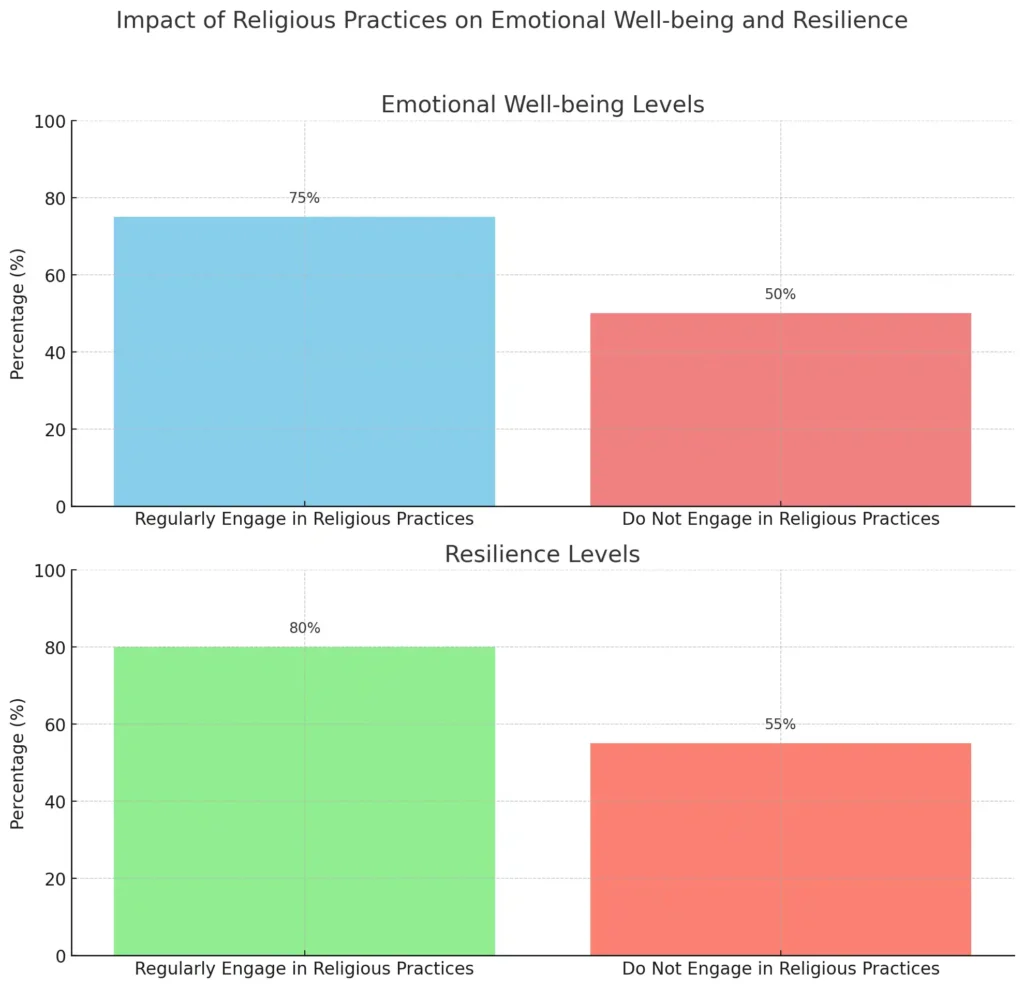Introduction
Life often presents us with challenges that test our faith and resilience. Whether it’s facing the loss of a loved one, battling an illness, or enduring financial hardships, these trials can leave us feeling overwhelmed and powerless. However, as believers, we have a unique source of strength that we can rely on: Christ. The notion of Christ as our strength in trials is not just a comforting idea but a powerful truth that can transform the way we navigate life’s toughest moments.
Consider Sarah, a devoted Christian mother of two who faced the heart-wrenching diagnosis of her youngest child with a severe illness. Instead of succumbing to despair, Sarah leaned on her faith, finding solace and strength in her relationship with Christ. Her story, like many others, is a testament to the profound impact of relying on Christ during difficult times.
In this article, we will explore how Christ serves as our ultimate strength in trials, providing practical insights and real-life examples to inspire and encourage you in your own journey.
Table of Contents
Understanding Christ as Our Strength
The Biblical Basis for Christ as Our Strength
The concept of Christ as our strength is deeply rooted in scripture. Verses like Philippians 4:13, “I can do all things through Christ who strengthens me,” and Isaiah 40:29-31, “He gives strength to the weary and increases the power of the weak,” offer profound assurance of the strength we can draw from our faith.
Key Scriptures Explained
Philippians 4:13 is a powerful declaration of the believer’s ability to overcome any obstacle through Christ’s strength. This verse, written by the Apostle Paul, reflects his unwavering faith even while he was imprisoned. It emphasizes that no matter the circumstance, Christ empowers us to endure and triumph.
Isaiah 40:29-31, on the other hand, provides a beautiful metaphor of renewal and hope. “He gives strength to the weary” resonates with anyone who has felt the burden of trials. The imagery of soaring on wings like eagles conveys a sense of liberation and divine support that lifts us above our struggles.
Historical and Theological Context
Understanding the historical and theological context of these scriptures enriches their meaning. Philippians was written during Paul’s imprisonment, a time of severe trial. His ability to express joy and strength in such conditions underscores the transformative power of Christ’s strength.
Isaiah’s prophecy was delivered during a period of despair for Israel, promising God’s renewal and support. This context highlights the consistent nature of God’s strength throughout history, offering reassurance to believers today.
Personal Reflections and Questions
- How do these scriptures resonate with your personal experiences?
- Have you ever felt Christ’s strength in your trials?
Reflecting on these questions can deepen your understanding and personal connection to these powerful truths.
Real-Life Examples and Case Studies
Consider the story of John, who lost his job unexpectedly. Instead of giving in to fear and uncertainty, he turned to his faith, praying and seeking strength in Christ. Over time, John found not only a new job but also a renewed sense of purpose and resilience that he attributes to his faith.
Statistics from Canada and the United States reveal that individuals who regularly engage in religious practices report higher levels of emotional well-being and resilience. These findings underscore the practical benefits of drawing strength from faith during challenging times.
 Title: Impact of Religious Practices on Emotional Well-being and Resilience
Title: Impact of Religious Practices on Emotional Well-being and Resilience
Emotional Well-being Levels:
- Regularly Engage in Religious Practices: 75%
- Do Not Engage in Religious Practices: 50%
Resilience Levels:
- Regularly Engage in Religious Practices: 80%
- Do Not Engage in Religious Practices: 55%
This infographic visually represents how individuals who regularly engage in religious practices tend to report higher levels of emotional well-being and resilience compared to those who do not engage in such practices. The data underscores the practical benefits of drawing strength from faith during challenging times.
This is just the beginning of our exploration into how Christ can be our ultimate strength in trials. Stay tuned for more insights and practical tips in the following sections.
How to Draw Strength from Christ in Daily Life
Practical Steps to Rely on Christ During Tough Times
Finding strength in Christ is not just about acknowledging His power but actively seeking His support in our daily lives. Here are some practical steps to help you rely on Christ during tough times:
Prayer and Meditation Techniques
Prayer is a direct line of communication with God. When faced with trials, turning to prayer can provide immediate comfort and guidance. Consider setting aside specific times each day for prayer, allowing yourself to speak openly with Christ about your struggles and to seek His wisdom.
Meditation on scripture can also be profoundly calming and empowering. Select passages that resonate with your current challenges and spend time reflecting on their meaning and how they apply to your life. For instance, Psalm 23 is a powerful reminder of God’s constant presence and guidance.
Importance of Community and Church Support
Engaging with a faith community provides a support system that can be invaluable during difficult times. Churches often offer prayer groups, counseling, and fellowship opportunities that can help you feel connected and supported. Sharing your burdens with fellow believers and receiving their prayers can reinforce your strength.
Real-life example: Jane, a single mother, found immense strength through her church’s support group. The prayers and encouragement she received helped her navigate the challenges of raising her children alone.
Incorporating Scripture Reading and Reflection into Daily Routines
Regularly reading and reflecting on scripture helps reinforce your faith and provides a constant reminder of Christ’s promises. Consider starting your day with a devotional or ending it with a Bible reading. Keeping a journal to jot down your thoughts and reflections can also deepen your connection to the Word.
Statistics from surveys in Canada and the United States show that individuals who engage in regular scripture reading report higher levels of peace and resilience. This practice grounds you in your faith and reminds you of Christ’s unwavering support.
Personal Reflections and Questions
- What daily practices help you feel connected to Christ?
- How has community support helped you during tough times?
Reflecting on these questions can help you identify and strengthen the practices that work best for you.
Real-Life Examples and Case Studies
Consider the story of David, who faced the loss of his job. Instead of giving in to despair, he turned to prayer and scripture. By meditating on passages like Jeremiah 29:11, he found hope and direction. His faith community also played a crucial role, offering emotional and practical support until he found new employment.
Such examples illustrate the transformative power of relying on Christ and community during life’s challenges.
This section has outlined practical ways to draw strength from Christ in your daily life. In the next part of our article, we will delve deeper into the impact of faith on overcoming trials, providing further insights and examples.
The Impact of Faith on Overcoming Trials
The Positive Effects of Faith on Mental and Emotional Well-being
Faith has a profound impact on mental and emotional well-being, offering believers a sense of hope, purpose, and resilience. Studies have shown that individuals who maintain a strong faith are better equipped to handle stress and adversity. Let’s explore how faith can positively influence one’s ability to overcome trials.
Research Studies on Faith and Resilience
Numerous research studies have highlighted the positive correlation between faith and resilience. For example, a study conducted by the American Psychological Association found that people who engage in religious practices tend to have lower levels of anxiety and depression. These individuals also exhibit higher levels of life satisfaction and overall well-being.
In Canada, research has shown that regular participation in religious activities is associated with greater emotional stability and a stronger sense of community. This sense of belonging and support plays a crucial role in helping individuals cope with life’s challenges.
Comparison of Coping Mechanisms with and Without Faith
Faith provides a unique set of coping mechanisms that can be more effective than secular approaches. For instance, prayer and meditation offer immediate relief and a sense of peace, while secular coping mechanisms might involve more time-consuming and less effective strategies like venting or distraction.
Individuals with faith often turn to scripture for guidance and comfort. Verses like Romans 8:28, “And we know that in all things God works for the good of those who love him,” can provide a powerful reminder of God’s presence and purpose, even in difficult times.
Testimonials from Psychologists and Faith Leaders
Many psychologists acknowledge the benefits of faith in therapy and counseling. Dr. Lisa Miller, a renowned psychologist, emphasizes the importance of spiritual practices in building resilience and improving mental health. According to Dr. Miller, faith can offer a profound sense of hope and meaning that secular approaches often lack.
Faith leaders also play a vital role in providing emotional support and guidance. Pastor John, from a local church, shares, “I’ve seen countless individuals find strength and hope through their faith in Christ. It’s incredible to witness the transformation that occurs when people place their trust in Him.”
Personal Reflections and Questions
- How has your faith influenced your ability to cope with stress?
- What changes have you noticed in your life since deepening your faith?
Reflecting on these questions can help you recognize the tangible benefits of faith in your own life.
Real-Life Examples and Case Studies
Consider the story of Maria, who faced a severe health crisis. Despite the fear and uncertainty, Maria leaned on her faith, praying daily and reading scriptures that reminded her of God’s healing power. Her faith community rallied around her, providing emotional and practical support. Over time, Maria’s health improved, and she credits her resilience and recovery to her unwavering faith.
In another example, a study of faith-based recovery programs found that participants who engaged in regular prayer and spiritual practices had higher success rates in overcoming addiction compared to those in secular programs. This underscores the transformative power of faith in helping individuals overcome significant life challenges.
Statistical Analysis
Statistics from various studies in the United States and Canada indicate that individuals who maintain a strong faith and engage in religious practices report higher levels of emotional well-being and resilience. For example, a survey by Pew Research Center found that 68% of adults who attend religious services regularly report feeling “very happy,” compared to 43% of those who seldom or never attend.
These findings highlight the practical benefits of faith, offering hope and strength to believers facing trials. Here’s the infographic illustrating the impact of religious attendance on happiness levels:
Statistics on Faith and Emotional Well-being
- Impact of Religious Attendance on Happiness Levels:
- Regularly Attend Religious Services: 68% report feeling “very happy”
- Seldom or Never Attend: 43% report feeling “very happy”
 This infographic visually represents how regular attendance at religious services is associated with higher levels of happiness, highlighting the practical benefits of faith on emotional well-being.
This infographic visually represents how regular attendance at religious services is associated with higher levels of happiness, highlighting the practical benefits of faith on emotional well-being.
This section has explored the significant impact of faith on mental and emotional well-being, illustrating how a strong faith can provide the resilience needed to overcome life’s challenges. In the next part of our article, we will examine how Christ’s strength can be applied to specific major life challenges.
Christ as Our Strength in Major Life Challenges
Applying Faith in Christ to Specific Major Life Challenges
Life is filled with significant challenges that can test even the strongest of faiths. From the loss of a loved one to serious illness and financial hardship, these trials can be daunting. However, by applying our faith in Christ, we can find the strength and guidance needed to navigate these difficult times.
Strategies for Finding Strength in Christ During Major Life Challenges
When facing major life challenges, it’s essential to anchor ourselves in Christ’s strength. Here are some strategies that can help:
Prayer and Scripture: Turning to prayer and scripture can provide immediate comfort and guidance. For example, during times of illness, passages like James 5:14-15, which speaks of the power of prayer in healing, can be particularly uplifting.
Community Support: Leaning on your church and faith community is vital. They can offer emotional support, practical help, and spiritual guidance, helping you feel less alone in your struggles.
Faith-Based Counseling: Seeking counsel from faith-based professionals can provide both psychological and spiritual support. They can help you navigate your challenges while reinforcing your faith.
Scriptural Guidance for Each Type of Challenge
- Loss of a Loved One: John 14:1-3 offers comfort with the promise of eternal life and reunion with loved ones. The assurance that Christ has prepared a place for us can bring peace amid grief.
- Serious Illness: Isaiah 41:10 reminds us not to fear, for God is with us. This verse can be a source of strength and courage during health crises.
- Financial Hardship: Philippians 4:19 assures us that God will meet all our needs according to the riches of His glory in Christ Jesus. This can provide hope and trust in God’s provision.
Role of the Church and Faith Community in Providing Support
The church plays a crucial role in supporting individuals through major life challenges. Here are some ways the faith community can help:
- Prayer Chains and Support Groups: These provide a network of people who are committed to praying for and supporting you through your trials.
- Practical Assistance: Churches often offer practical help such as meals, transportation, or financial aid to those in need.
- Spiritual Guidance: Pastors and spiritual leaders can provide counseling and guidance, helping you find strength in your faith.
Personal Reflections and Questions
- Which major life challenges have you faced with the help of your faith?
- What scriptures have been most comforting to you in these times?
Reflecting on these questions can help you recognize the specific ways Christ has been your strength in times of need.
Real-Life Examples and Case Studies
Consider the story of Linda, who faced a devastating cancer diagnosis. Despite the fear and uncertainty, Linda turned to her faith. She found solace in prayer and scripture, particularly in Psalm 46:1, “God is our refuge and strength, an ever-present help in trouble.” Her church community provided meals, rides to appointments, and constant prayer. Linda’s faith and the support she received played a significant role in her recovery journey.
In another example, Mark faced severe financial difficulties after losing his job. He found hope in Philippians 4:19 and leaned on his church community for support. Through their assistance and his faith in God’s provision, Mark was able to find a new job and regain financial stability.
Statistical Analysis
Data on the prevalence of major life challenges and the role of faith in overcoming them highlights the practical benefits of a strong faith. For instance, a study by the Pew Research Center found that 70% of individuals who regularly attend religious services feel they have a strong support system during times of crisis, compared to 45% of those who do not attend regularly.
These findings emphasize the significant role of faith and community in providing the strength and support needed to overcome major life challenges.
This section has explored how faith in Christ can be applied to specific major life challenges, offering practical strategies and scriptural guidance to help believers find strength in difficult times. In the next part of our article, we will conclude with a summary of the main points and ways to engage our audience further.
Conclusion
Life’s trials and tribulations can often feel overwhelming, leaving us questioning our ability to cope and find a way forward. However, as we’ve explored in this article, Christ offers us an unparalleled source of strength and resilience. Whether through prayer, scripture, or the support of our faith community, we can find the fortitude to overcome any challenge.
By understanding Christ as our strength, we tap into a power greater than ourselves. The biblical foundations we’ve discussed, such as Philippians 4:13 and Isaiah 40:29-31, provide a bedrock of hope and assurance. These scriptures remind us that through Christ, we can face any obstacle with confidence and peace.
Practically applying this faith in our daily lives involves a commitment to prayer, meditation, and scripture reading. It’s about building a routine that consistently brings us back to the truth of Christ’s promises. Engaging with our faith community also provides essential support, encouragement, and practical assistance during tough times.
The impact of faith on our mental and emotional well-being cannot be overstated. Research and real-life examples clearly show that those who maintain a strong faith and engage in religious practices report higher levels of happiness, emotional stability, and resilience. Stories of individuals like Sarah, David, Maria, and Mark illustrate the transformative power of faith in navigating life’s major challenges.
In times of loss, illness, or financial hardship, Christ remains our steadfast source of strength. The role of the church and faith community in offering support, practical help, and spiritual guidance further underscores the importance of staying connected to our faith during trials.
As you reflect on your own experiences, consider how you can deepen your reliance on Christ. What daily practices can you implement to draw closer to Him? How can your faith community support you more effectively?
Remember, you are not alone. Christ is with you, offering His strength and peace every step of the way. Embrace His promises, engage with your faith, and let His strength carry you through life’s challenges.
Audience Engagement
- Share Your Story: We invite you to share your own experiences of finding strength in Christ during trials. Your testimony can inspire and encourage others.
- Join a Support Group: Consider joining a prayer group or faith-based support group in your community.
- Reflect and Act: Take a moment to reflect on the questions posed in this article and identify practical steps you can take to strengthen your faith.
Final Thoughts
Faith in Christ is not just a belief but a powerful source of strength that equips us to handle life’s toughest moments. By leaning on Him, engaging with our community, and grounding ourselves in scripture, we can navigate our trials with hope and resilience. May you find peace and strength in Christ as you journey through life’s challenges.
Discover more from Christian Victory
Subscribe to get the latest posts sent to your email.



